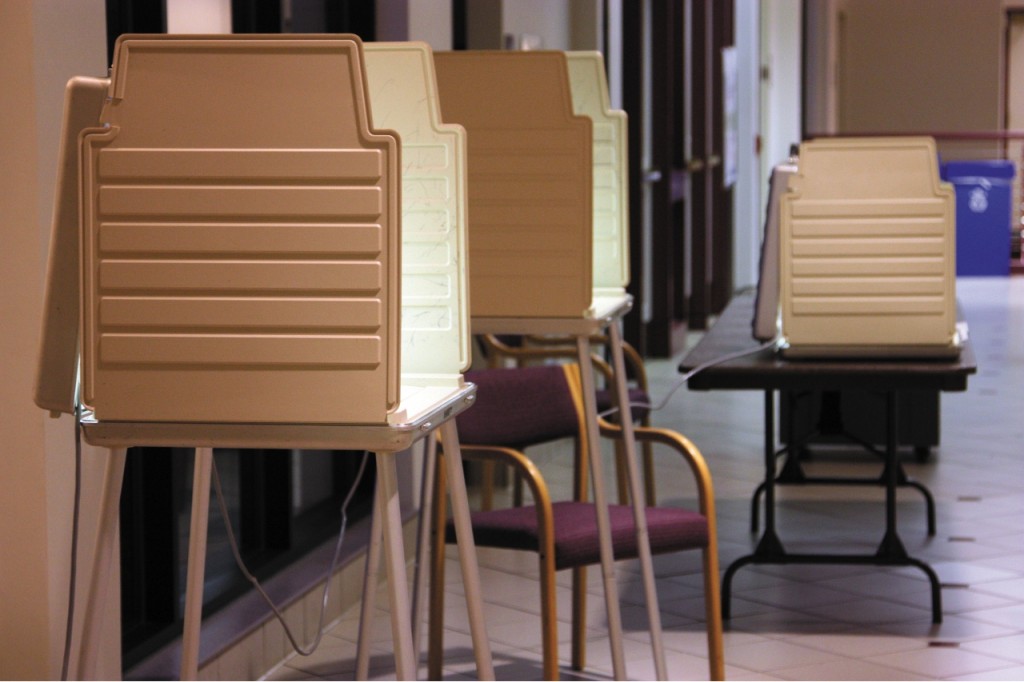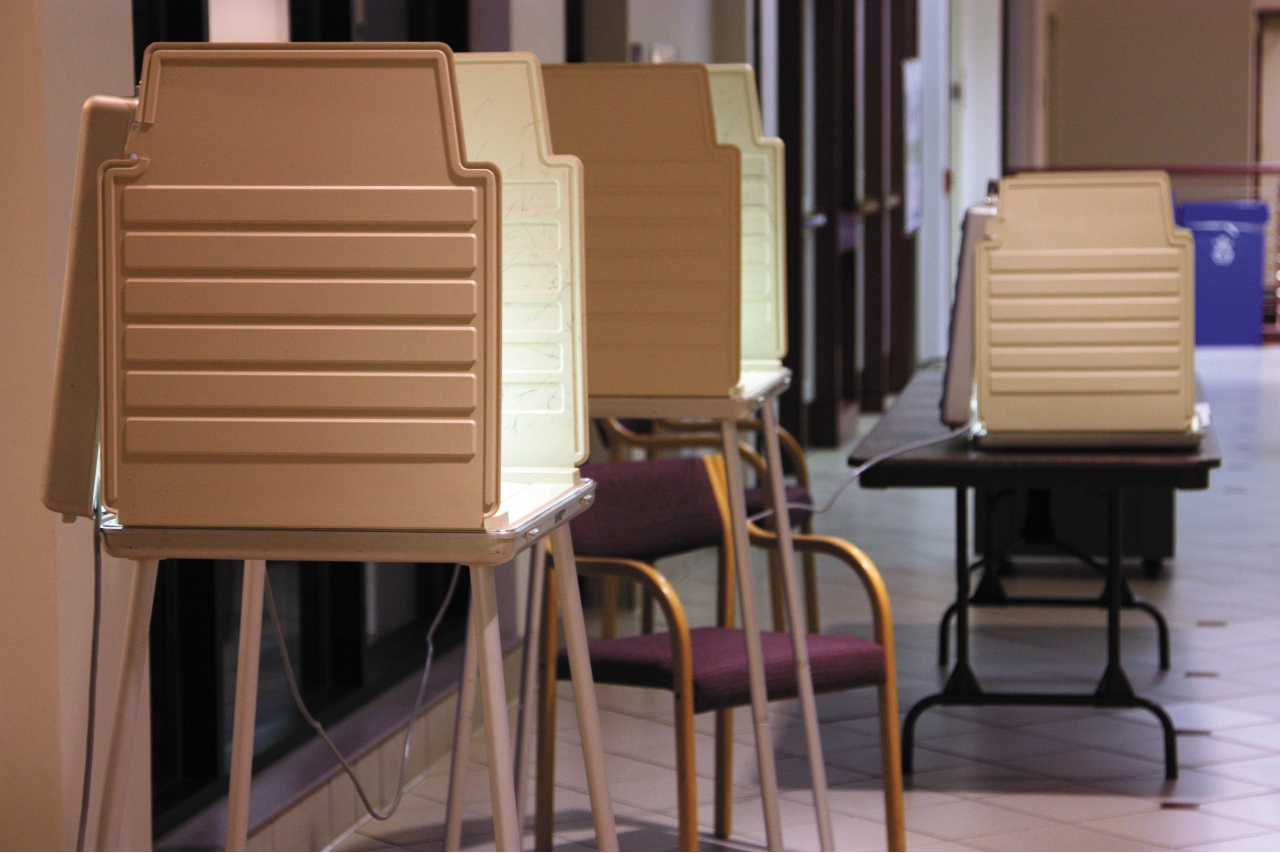
The polls opened for Moorhead city elections on Tuesday, Nov. 8, but student turn out was low, according to election judge Erik Skee.
“Students aren’t as vested [in the local elections] because they live other places,” Skee said. He has been an election judge for Ward 3, Concordia’s Ward, for six years.
City council members were selected in the election. Concordia College falls in Ward 3, for which candidates were Mike Hulett and Daniel Hunt. Hulett won with 180 votes versus 148 votes for Hunt.
Parking, police protection, fire department codes, housing and taxes are all affected by the city council, according to Skee, which is why more students should vote in the local elections.
Concordia freshman Chase Body, a Moorhead native, also served as an election judge.
“Voting applies more to students than they think,” said Body, “but they might not be informed.”
Paying attention to the news to stay up to date is Body’s best advice for students. He became involved with the elections when he turned 18 because of his interest in politics. Body is majoring in business and graphic design.
The polls, which were open between 7 a.m. and 8 p.m. in the Olsen Forum foyer, were slow most of the day, according to Donald Dale, in his fourth year as an election judge.
“It’s natural,” he said. “It’s the presidential elections that draw the most students.”
Dale served as the registrar to Concordia College between 1954 and 1993, and he remembers when students first became eligible to vote at the age of 18.
“It’s one way of getting students involved and thinking about issues,” he said.
The voting poll on campus was one of three precinct locations in Ward 3. At 1 p.m., just 50 voters total had placed their votes in the ballot box. Only three people had registered as new voters.
Concordia math Professor Bill Tomhave serves on the Moorhead School Board and knows that many college students forget to pay attention to what’s happening in their larger community.
“Municipal elections are notoriously slow,” he said.
Conditions of city roads, law enforcement, utility costs and neighborhood growth are items dictated in part by the city council that directly affect students, according to Tomhave, especially if students are living off campus or renting property.
“When it comes to the local scene,” Tomhave said, “I say if you want to be civically involved, do take time to inform yourself.”
Steph Barnhart, 2013, is a multimedia journalism and public relations major at Concordia College. She has been a contributing writer, staff writer, and the news editor for The Concordian. Steph is an optimistic vegetarian who loves sustainability blogs, green tea, and talking. Follow her on Twitter at @stephbarnhart.











First the judge onfefded the public, but was within the law. Now it appears he’s appeased the public but has onfefded the law. I’d note that in State v. Rice, 483 A.2d 248 (Vt. 1984) the Vermont Supreme Court stated that a judge should be faithful to the law and not be swayed by partisan interests, public clamor or fear of criticism. In that case, involving a similar prosecution for lewd and lascivious conduct with a nine-year-old child, it held that the trial court abused its discretion at the sentence review hearing in ordering an enhanced sentence based in part on public clamor over the original sentence imposed. Id. at 252-53.Vermont state law is quite clear on when a court can resentence a defendant to an increased penalty. Specifically, 13 V.S.A. § 7042 states that:(a) Any court imposing a sentence under the authority of this title, within 90 days of the imposition of that sentence, or within 90 days after entry of any order or judgment of the supreme court upholding a judgment of conviction, may upon its own initiative or motion of the defendant, reduce the sentence.(b) A state’s attorney or the attorney general, within seven days of the imposition of a sentence, may file with the sentencing judge a motion to increase, reduce or otherwise modify the sentence. This motion shall set forth reasons why the sentence should be altered. After hearing, the court may confirm, increase, reduce or otherwise modify the sentence.It appears that while a court has 90 days in which to reduce a sentence, it has only 7 days in which to increase it. State v. Draper, 712 A.2d 894 (Vt. 1998) (under 13 V.S.A. § 7042, trial court was without authority to increase sentence after seven days from the imposition of the original sentence – in this case, 226 days later). Cf., State v. Boyer, 481 A.2d 15 (Vt. 1984) (following pleas of no contest, sentences properly increased when state moved for reconsideration one day after sentencing hearing); Rice, Id. (resentencing occurred five days later).Nonetheless, a double jeopardy claim is one that may be waived by the defendant. State v. Maunsell, 743 A.2d 580 (Vt. 1999); State v. Callahan, 587 A.2d 970 (Vt. 1991); Reporter’s Notes to V.R.Cr.P. 12 at 68 (if double jeopardy is not raised either by pre-trial motion or at trial, then it is waived unless unknown at the time). By failing to raise the issue in the trial court, Hulett may have waived his right to assert a double jeopardy claim. However, a waiver may be invalid if the defendant asserts that he wasn’t aware of a possible double jeopardy bar & then raises the issue through an ineffective assistance of counsel claim. Of course, unless the trial record disclosed all facts essential to such a claim, Hulett would be required to raise it in a collateral attack rather than on direct appeal since it’s a challenge to the sentence & not the conviction. In re Moskaluk, 156 Vt. 294, 298, 591 A.2d 95, 97 (1991) (ineffective-assistance-of-counsel claim will not be considered on direct appeal absent trial court record upon which claim can be judged); State v. Bacon, 163 Vt. 279, 296- 97, 658 A.2d 54, 66 (1995) (ineffective-assistance-of-counsel claims may be addressed on direct appeal if claim was raised and adjudicated at trial).